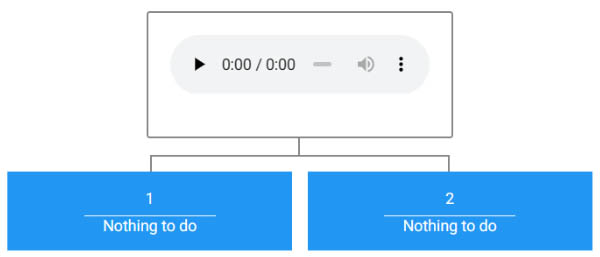In the dynamic environment of modern business, where customer satisfaction and operational efficiency are of paramount importance, interactive voice response (IVR) systems have become a revolutionary technology. This article discusses the main components of IVR systems, their operational mechanics, the difference between IVR and the Internet Voice Transmission Protocol (VoIP), as well as a number of innovative business use cases.
Interactive Voice Response (IVR) is a sophisticated telephony technology that automates customer interaction. Using pre-recorded voice prompts and input from a tone keyboard, IVR systems offer an intuitive and efficient way for callers to interact with businesses. IVR systems are able to route calls, collect information about callers and provide immediate responses, reducing the need for human intervention and waiting time.

The IVR system is based on its menu structure. IVR menus offer callers a menu of options that help them select a range of options, often using their phone's tone keyboard. This allows callers to access information, select services, or route their calls to specific departments, optimizing call routing and ensuring that callers get to their desired destination quickly.
It is important to distinguish between IVR and Voice over Internet Protocol (VoIP), as they perform different but interrelated functions. VoIP refers to voice communication transmitted over the Internet, while IVR is a function of many VoIP systems. The role of IVR is to automate call interaction by providing callers with voice prompts and menu options to help them with their queries.

Appointment Reminders and Scheduling:
Healthcare providers can send automatic appointment reminders via IVR, allowing patients to conveniently confirm, reschedule or cancel appointments.

Surveys and feedback collection:
Companies can use IVR to conduct surveys and collect valuable customer feedback. Callers can participate by choosing options that reflect their opinion.

Order Status and Tracking:
E-commerce platforms can integrate IVR to provide real-time updates on order status and delivery tracking. Customers receive the latest information without contacting customer support.

Payment and Billing:
IVR systems offer secure payment options, allowing customers to pay bills, make payments or request account balances without an agent.

Emergency Notifications:
Organizations can use IVR to provide important information during emergencies. For example, schools can notify parents about school closures due to inclement weather.

Preferred Language Selection:
The IVR menu can offer callers a choice of preferred language, increasing convenience and accessibility for customers.

Employee Self-service:
IVR systems can serve as internal tools that allow employees to access personnel information, information about benefits and company updates.

Product Information Line:
Companies can use IVR to provide product details, specifications, and pricing information, freeing up sales departments for more complex queries.
Interactive voice response systems are universal tools that redefine customer interaction and operational workflows across industries. By offering self-service options, improving call routing accuracy, and facilitating efficient data collection, IVR systems contribute to increased customer satisfaction and operational efficiency.
In conclusion, it should be noted that IVR systems are key factors for the success of modern business. Their ability to seamlessly process customer requests, optimize operations and improve the overall quality of service underscores their indispensability in today's competitive business environment.